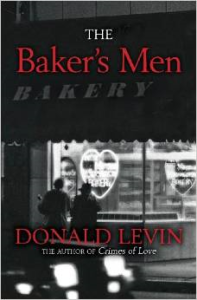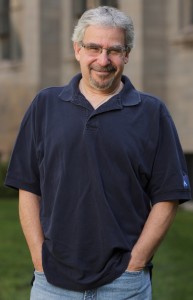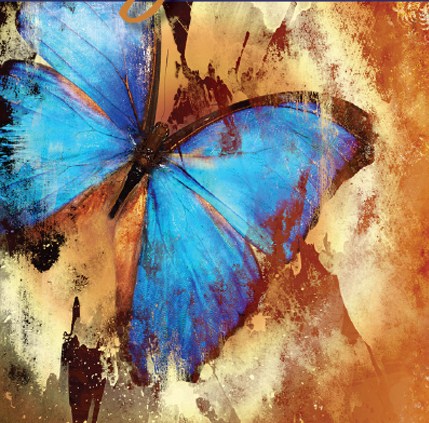

Title: The Baker’s Men Author: Donald Levin Publisher: Poison Toe Press Publication Date: April 20, 2014
Pages: 338 ISBN: 978-0615968568 Genre: Mystery / Crime Fiction / Police Procedural
Format: Paperback, eBook, PDF
Easter, 2009. The nation is still reeling from the previous year’s financial crisis. Ferndale Police detective Martin Preuss is spending a quiet evening with his son when he’s called out to investigate a savage after-hours shooting at a bakery in his suburban Detroit community. Was it a random burglary gone bad? A cold-blooded execution linked to Detroit’s drug trade? Most frightening of all, is there a terrorist connection with the Iraqi War vets who work at the store? Struggling with these questions, frustrated by the dizzying uncertainties of the case and hindered by the treachery of his own colleagues who scheme against him, Preuss is drawn into a whirlwind of greed, violence, and revenge that spans generations across metropolitan Detroit.
Guest Post On Writing Fiction and Poetry
By Donald Levin
Are writing poetry and writing fiction
different activities? On first blush, the answer seems obvious: of course! Poetry
and fiction are two different genres, they don’t look the same, they don’t
sound the same, they take very different amounts of time to read, and they have
very different effects on the reader.
So case closed, right?
Well, not so fast. As someone who has
published both poetry and fiction, I can tell you that writing poetry and writing
fiction are more alike than you might think . . . maybe they even have more similarities
than differences.
For example, a writer goes through the
same processes when she writes a poem as when she writes a piece of fiction,
whether short story or novel. Poets and fiction writers all wrestle with issues
of form, structure, tone, diction, point of view, and message. Poems and pieces
of fiction are all products of the intersection between our creative
imaginations and the world around us. We might think fiction takes longer to
write than poetry, but it’s not unusual for poets to work for months and even
years to get a single poem “right.” I once published a short story,
“Freewheelin’,” that I cranked out in a couple of days, yet I typically work
over drafts of poems for months before I share them with anybody, let alone try
to publish them.
Even the sources of inspiration for both
genres are similar. People often think poets are inspired by going out and
contemplating the moon or, as Wordsworth said, meditating on “emotion
recollected in tranquility.” But my experience suggests we’re more inspired by
what we read. As a poet I get inspired by reading other poems, just as I get
inspired to write fiction by reading novels and short stories. Then too,
sometimes reading a novel inspires a poem. Writing a poem might suggest an idea
for a short story.
Poets and novels have the same kinds of
impact on their readers. Both touch people’s minds and hearts, and both, when
they’re good, enlarge our sympathies about the joys, sorrows, and possibilities
of being human.
For a writer, a key question is, Does
writing in one genre impact my writing in another? Mainly, I think writing
outside your primary genre can increase what musicians call your “chops” . . . your
technical skills. It increases your overall dexterity and versatility. Learning
how to move a plot along in fiction teaches you how to stage the effects of
your poetry; the increased attention to words that a poem requires makes you
more sensitive to the power of language in your stories.
Bookshelves are full of works by people
who wrote outside their customary genres . . . Poets like James Dickey and Margaret
Atwood wrote novels, and even the novelist Ernest Hemingway published poetry.
Maybe the entire notion of genres is something made up by critics to pin down
the slippery genius of writers?
So what does all this mean for you? If
you think of yourself as primarily a fiction writer, try your hand at poetry. If
you’re a poet, take a crack at a short story or, if you’re ambitious, a novel.
You don’t have to produce “The Waste Land” or War and Peace to grow as a writer in meaningful ways.
You might discover a knack for a kind of
writing you never knew you had. And you’ll have given yourself a whole new
literary world to explore.
Author Bio
An award-winning fiction writer and poet, Donald Levin is the author of The Baker’s Men, the second book in the Martin Preuss mystery series; Crimes of Love, the first Martin Preuss mystery; The House of Grins, a mainstream novel; and two books of poetry, In Praise of Old Photographs and New Year’s Tangerine. Widely published as a poet and with twenty-five years’ experience as a professional writer, he is dean of the faculty and professor of English at Marygrove College in Detroit. He lives in Ferndale, Michigan, the setting for his Martin Preuss mysteries. You can visit Donald Levin’s website at http://donaldlevin.wordpress.com.
Connect with Donald:
Author Website: http://donaldlevin.wordpress.com
Author Blog: http://donaldlevin.wordpress.com
Twitter: https://twitter.com/donald_levin

Thank you for hosting the virtual book tour event. - Kathleen Anderson, PUYB Tour Coord.
ReplyDelete